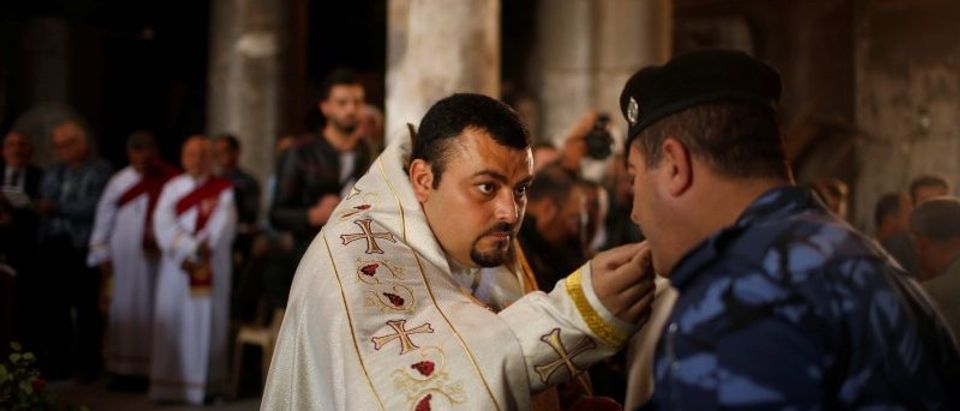With military operations against ISIS in Mosul on the verge of winding down, it is long past time we started asking hard questions about what we’re doing to help the victims of ISIS’ multi-year genocidal rampage across Iraq. What will happen to the tens of thousands of Christians, Yazidi’s, and others driven from their homes, and what are we doing do assist them? To do this, we thought it was important to talk with the victims themselves. Do Christians and other religious minorities even want to remain in Iraq after all they have suffered? Do they see a future for themselves and their families? And do internally displaced persons (IDPs) have confidence that the Iraqi government will provide stability for them to remain in the country long term?
My organization, International Christian Concern (ICC), set off to find answers through a survey of Christian IDPs. Since the U.S. continues to play a very big role in the country, one of our objectives for this survey was to find answers to the questions above so that we can help shape US policy and inform our lawmakers as they consider Iraq’s future, and especially the place of religious minorities.
Our survey, conducted in Arabic and distributed and administered by contacts in IDP camps and churches throughout Northern Iraq, includes 496 men and women who identify as Christian and who were displaced by ISIS. Although it is almost impossible to gather a perfect representative sample of such a dispersed community in a single survey, ICC made sure to include areas like the Nineveh Plain, home to the largest proportion of Christians driven out of their homes by ISIS.
So what were the results? First, when asked to rate how they felt about the statement, “I believe Christians have a future in this country,” over 60% of respondents could not definitively say that they believe Christians have a future in Iraq. These answers showed us that many Christians in Iraq, who are a part of one of the world’s oldest continual Christian communities (dating back to the first century A.D.), are highly uncertain about their future. It also shows a severe lack of confidence in the ability of the Iraqi government to protect them from future attacks.
Second, and backing up the first point, nearly half of respondents believe that Iraq needs “a great deal of assistance” from other countries in order to provide security for religious minorities. For a war-weary and cash strapped international community, this might not come as welcome news, but as has been argued elsewhere, protecting religious freedom (which includes protecting religious minorities) may actually be one of the best ways to help stabilize a country and to start building a more prosperous future.
Third, and perhaps most shockingly given Iraq Christian IDP’s distrust of the Iraqi government, only 11% of respondents say they are completely against returning to their native village if it is free of ISIS. A full 44% of Christian IDPs plan to return home when it is safe to do so. This is an amazing testament to the incredible resilience of a community that has lost 80% of its population in recent years.
Overall, what our survey demonstrated clearly is that the majority of Christian’s displaced by ISIS remain open to returning to their home, but to do so they need help and they need the assurance that they’ll be kept safe.
So what are we doing to assist? Here, in Washington D.C., well over a year after the U.S. House of Representatives and Secretary of State recognized the genocide against Christians in Iraq, lawmakers in the Senate are sitting on the only bill that has made any meaningful progress towards providing tangible assistance to the victims of ISIS. That bill, H.R. 390, passed unanimously in the House on June 6th, but the bill now sits in limbo in the Senate Foreign Relations Committee. There also appears to be no concrete strategy yet from the administration detailing how the U.S. might lead an effort to protect the religious minorities of the country.
With ISIS on the retreat, the courageous Christians of Iraq have told us they are ready to start rebuilding, but they aren’t sure they can do it without our help. How can the United States recognize that genocide is taking place but do little materially to assist the victims who have been forced to flee en masse? After all, would it not be the hollowest of victories to defeat ISIS on the battlefield, only to have sat idly by as the target of all their wrath and fury slipped into extinction? Let’s act now, and ensure that the two-thousand year old history of Christianity in Iraq does not come to an end on our watch.












